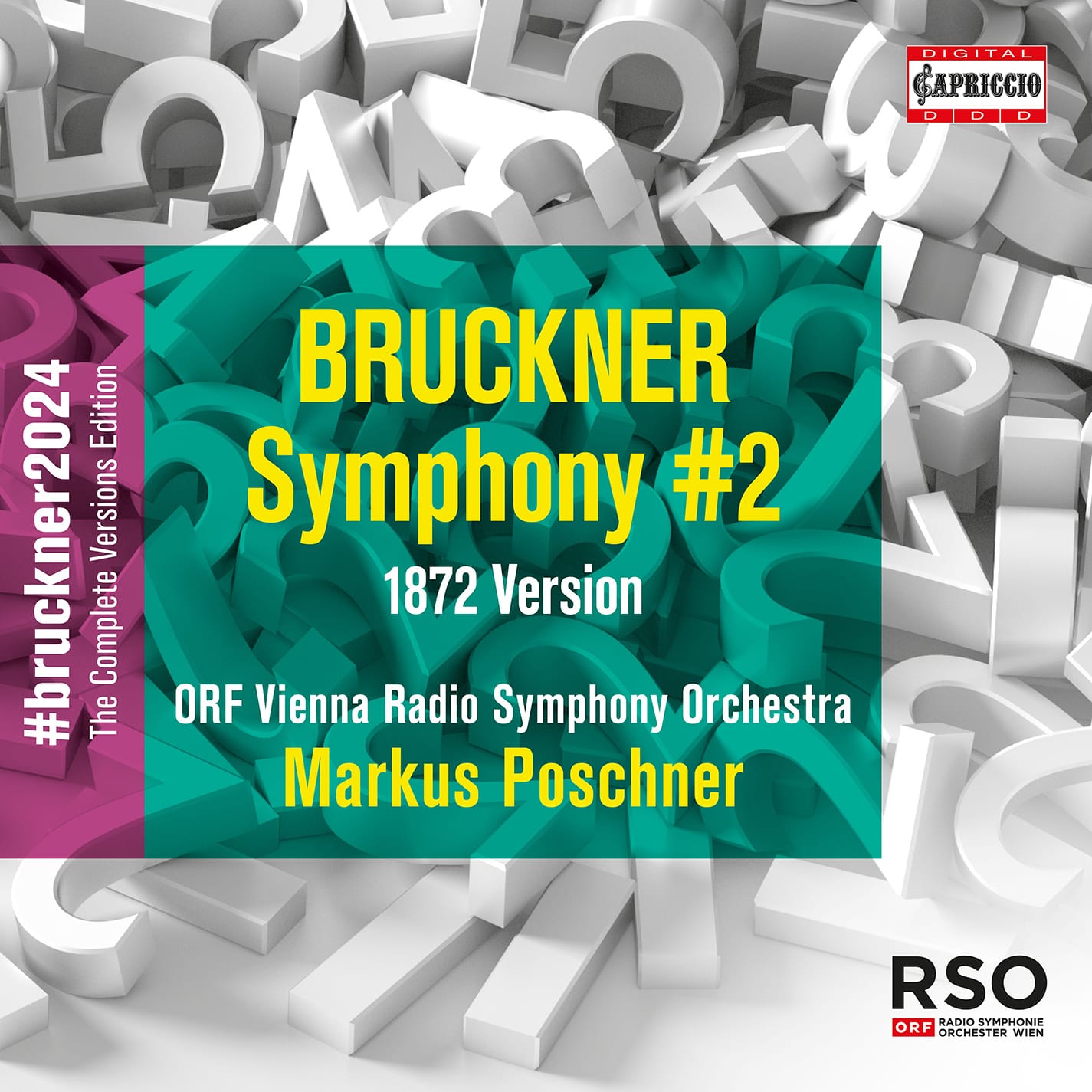More Bruckner: Symphony No. 2 in the rare 1872 version
We hear Bruckner on the way to true greatness, and on that road he births a fine, fine symphony

Until now, if one comes across Bruckner's Second Symphony - a less likely scenario than encountering No. 3 - it would be in the 1877 version. Here is the 1872 score, almost unperformed but heard here in a fine performance. Bruckner scholar William Carragan edited this score, and it is heard in a most persuasive account by Markus Poschner and the ORF Vienna Radio Symphony Orchestra, part of a cycle intended to “include all versions published or to be published under the auspices of the Austrian National Library and the International Bruckner Society in the Neue Anton Bruckner Gesamtausgabe (The New Anton Bruckner Complete Edition)”; the performance was recorded in Vienna's Radio Kulturhaus last year.
The triumph of this performance is to persuade us to hear the early version the Second as a substantive statement in itself. There is every reason to turn our attention to this beautiful, predominantly pastoral piece, so full of the heart of Bruckner, so full of promise and yet a complete entity in its own right.
Here's a short five-minute video:
As the video points out, this was the first of Bruckner's symphonies to be performed in Vienna. Composition was actually begun in London, while the composer was on an organ tour. The symphony begins with a palpable urgency, a keening theme appearing after the characteristic Bruckner tremolo on upper strings. There is no doubt that Poschner is the antithesis of the grand Brucknerian tradition - this is fast and light, more in the manner of François-Xavier Roth's Bruckner (and therefore in accord with Klaus Mäkelä's Fifth from Dresden reviewed in a post yesterday). Poschner is compelling, though, because he does build the climaxes well, he does hear on the larger scale. He has the best of both worlds: he can relax into the second subject group, he can find folkish echoes and revel in them. Orchestrally, there are some stunning woodwind contributions:
The Adagio, placed second (and actually against Carragan's order) is long-breathed in terms of phrasing, yet moves nicely. This version puts a horn solo at the end of this movement (beautifully, and accurately, played: it is a clarinet in the later incarnation). Poschner encourages the Austrian strings to great tenderness; it is in the attention to detail texturally that the performance shines. There is a translucency here that is most impressive, as is the way he holds a moment of silence with real electricity around the ten-minute mark:
... and here's the 1877 version:
The Scherzo is hectic and frenetically exciting, and yet so well rehearsed and recorded that every detail remains audible. Trumpets call forth action; strings revel in the faster detail, preternaturally together. The pastoral Trio seems to have kinship, in thematic shape, with the first theme of Beethoven’s “Eroica,” to my ears at least. Poschner and his Vienna forces are undeniably a force of nature in the Scherzo itself, and the movement has a lovely sense of structural completeness (in the later version, Bruckner cut a whole section, unbalancing this feeling of a whole):
The finale is a grand conception (193 bars longer than the later version). Under such a sympathetic and understanding conductor as Poschner, though, it works superbly well. This is music that benefits from fervent advocacy and accurate performance, and both are here in spades:
Some initial criticism of the Second was centred on a prevalence of pauses, and the clear influence of Wagner; the first should not be a problem to a good conductor, the second is no bad thing. We hear Bruckner on the way to true greatness, and on that road he births a fine, fine symphony. Beyond doubt, one I should like to hear live.
The disc is available on Amazon here;

The 1877 version is available for streaming at Amazon here. Spotify below.

